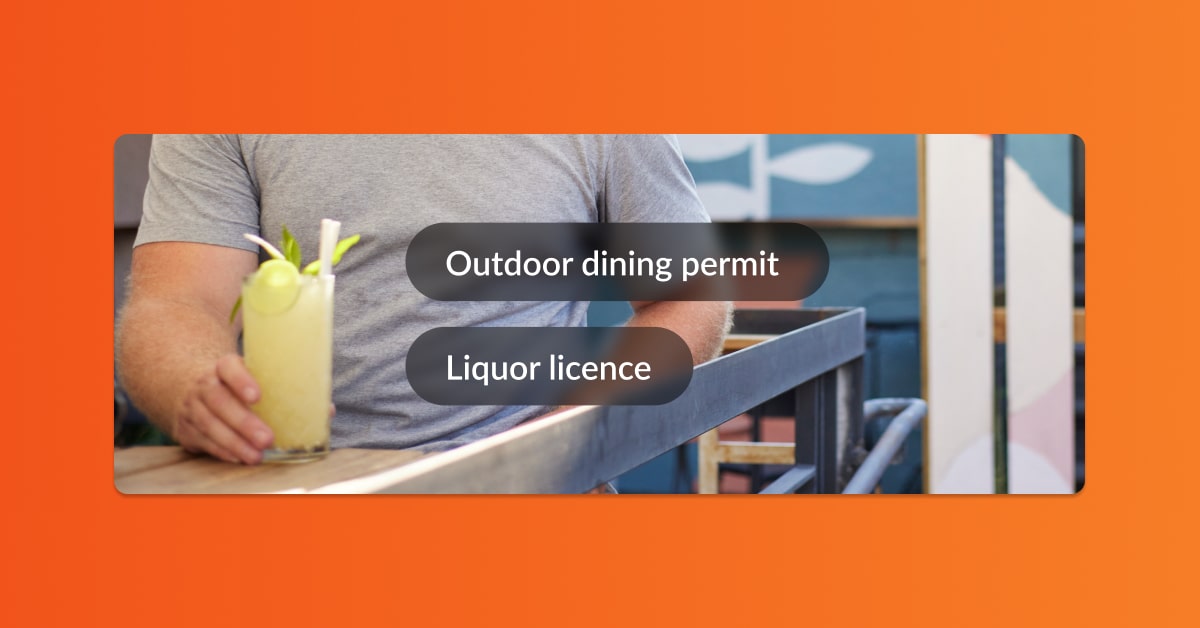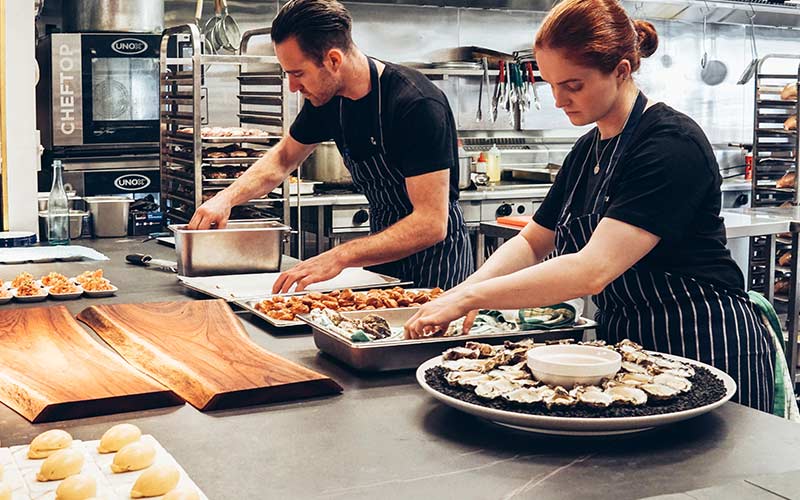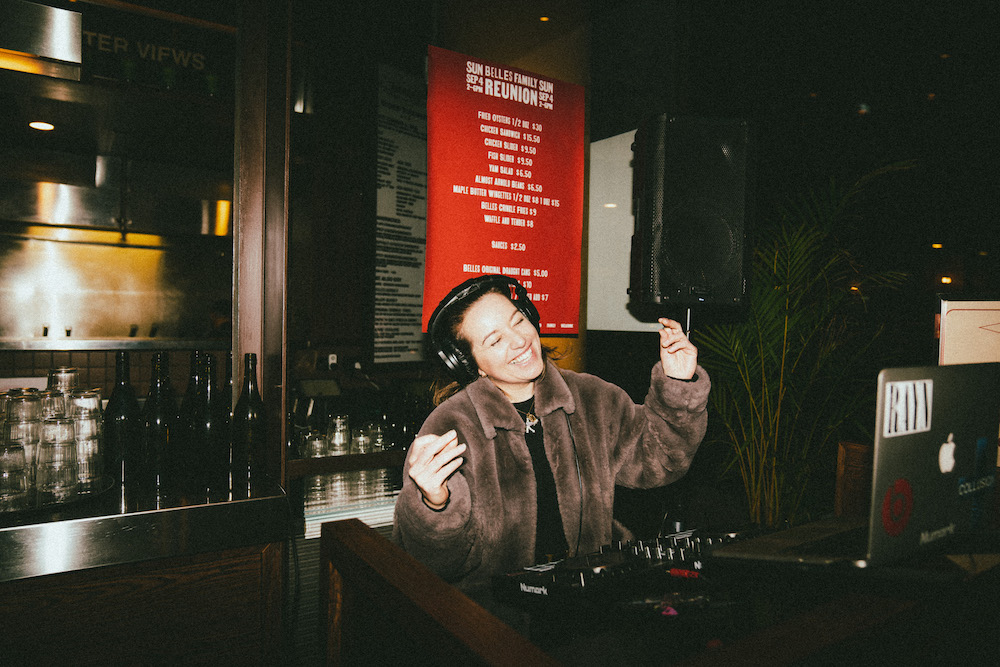
Opening a restaurant takes grit and determination, and there’s a lot to tick off your to-do list before you can welcome guests through your doors. One of the most important things you’ll need to do before you start trading is obtaining all the necessary restaurant licences and permits to ensure you’re compliant with local council regulations and can legally operate.
Depending on your business size and operational requirements, some restaurants may require different licences and permits than others. However, there are six main licences and permits every restaurant should secure before opening its doors.
Why do you need restaurant licences?
Restaurants must obtain certain licenses to ensure they comply with government regulations and public health and safety standards. These licenses aim to protect customers by ensuring that the restaurant follows proper guidelines and procedures – such as fire safety, food safety and the responsible service of alcohol.
While a few optional permits are available to restaurants, the majority are legal requirements. If caught without the correct paperwork, you risk receiving a fine or having your business shut down.
What permits and licences are required in Australia?
The exact licences and certificates you’ll need will vary depending on the size of your restaurant, state government and operations. In most cases, new restaurants will need the following:
- Food business licence
- Liquor licence
- Fire safety certificate
- Music licence
- Outdoor dining permit
- Building certificates
Remember: The application process for each licence or permit can often be lengthy and costly, so it’s crucial to get a head start on applications early on in the process.
Opening A Business Costing Calculators
This costing template covers all essential costs from securing your location, to opening your doors.
1. Food business licence
A food business licence is one of the first licences you’ll need to apply for before opening your restaurant. Business licenses allow restaurant owners to operate under the correct legislation and follow proper food safety guidelines.
Without a food business licence, you won’t legally be able to sell food in your restaurant.
The process for obtaining a food business licence differs in each state, but in most cases, you’ll need to register your restaurant with the local council to get a business license.
In New South Wales, for example, you must notify either the NSW Food Authority or your council if you intend to operate a food business. By registering your business with local authorities, government food agencies can easily assess food handling risks and maintain a relationship with your restaurant to ensure you operate to the correct standards.
To learn more about business licences, please visit the Australian Business License and Information Service website, or visit your local state government website for more information.
- Australian Capital Territory
- New South Wales
- Northern Territory
- Queensland
- South Australia
- Tasmania
- Victoria
- Western Australia
Remember: Before obtaining a business licence, you’ll first need to apply for an Australian Business Number (ABN) and register to pay GST.

2. Liquor licence
If you plan to sell alcohol at your restaurant, you’ll have to obtain a liquor license from the appropriate state or territory government. However, the type of licence you’ll need will depend on your business operations.
For example, if you’re running a cafe or a restaurant where food is the primary source of business, you’ll need a different type of licence than a pub or large bar.
The cost of a liquor licence can also vary depending on your location, state government, council requirements and business intentions. For example, in New South Wales, liquor licence base fees range from around $100 to $550+, whereas in Victoria, fees range from around $62 to $980+.
Please visit your state government or territory website to learn more and apply for a liquor licence.
- Australian Capital Territory
- New South Wales
- Northern Territory
- Queensland
- South Australia
- Tasmania
- Victoria
- Western Australia
Note: Before applying for a liquor licence, you’ll need a National Police Certificate, including a criminal record check.
3. Fire safety certificate
Fire safety is an essential consideration for all restaurants, and a fire safety certificate ensures your restaurant complies with relevant fire safety regulations.
A fire safety certificate covers a range of fire safety measures, including fire alarms, sprinklers, fire extinguishers, and emergency exits. It ensures that your restaurant has adequate fire protection measures in place to prevent the spread of fire and to protect occupants in the event of a fire.
As with other restaurant licences and permits, fire safety regulations differ by state, so it’s important to check with your local council to understand what is required of your business.
For example, in New South Wales, restaurants should obtain an Annual Fire Safety Statement, which covers all the essential fire safety measures that apply to a building. The statement also verifies that an accredited fire safety practitioner has inspected and confirmed that the exit systems in the building comply with current regulations.
Restaurant Employee Handbook Template
Standardize your restaurant's policies, guidelines and processes with your custom restaurant employee handbook.
4. Music licence
If you plan to play music in your restaurant, you’ll need a music licence to cover copyright issues.
A licence is almost always required to play music in a public space, such as in a bar or restaurant, as most music is protected by copyright law, and the copyright owner has the exclusive right to control the use of their music. Essentially, the licence acts as permission from the copyright owners to play their music in your venue.
The easiest way to apply for a music licence is through OneMusic Australia. A OneMusic licence permits Australian businesses to play the vast majority of the music heard on radio, TV, music-streaming services or music purchased online or in stores.

5. Outdoor dining permit
If you plan to seat and serve customers outside your venue on a public footpath, you’ll need to obtain an outdoor dining permit.
In the wake of the Covid pandemic, many state and territory governments have made it easier for restaurants to apply for outdoor dining permits by removing unnecessary red tape restrictions.
For example, the NSW and Victorian governments launched alfresco dining initiatives to encourage hospitality businesses to extend their service outdoors by offering rebates and speeding up applications.
Outdoor dining permits are issued to businesses by local councils rather than the federal or state governments. Please visit your local council website to learn more and apply for an outdoor dining permit.
6. Building certificates
If you’re planning to make major renovations to your venue, are building something new or occupying a space that wasn’t previously a restaurant, you’ll likely need to apply to your local council for a number of building certificates.
- Zoning certificate – provides information on any controls, requirements and restrictions that may impact how a property is used; for example, if it is heritage-listed.
- Occupation certificate – for businesses that plan to occupy or use a new building or change the use of an existing building.
- Compliance certificate – confirms that the completed building work complies with council, development and regulatory requirements.
Applying for all the necessary restaurant licences and permits will take time, but it’s crucial to dedicate enough time to each application to ensure your restaurant can open on time and without a hitch.
While this list contains the major licences a restaurant should apply for, depending on your operational requirements, you may need several other restaurant licences and permits, so it’s essential to consult with your local council before opening.
2024 Report: Hospitality Insights and Dining Dynamics
A survey of Australian hospitality operators and consumers reveals in-depth insights on dining trends, the financial shifts in Australia, restaurant technology and what to watch in 2024.

News you care about. Tips you can use.
Everything your business needs to grow, delivered straight to your inbox.


